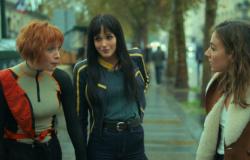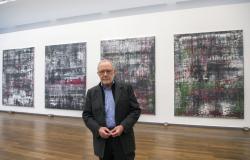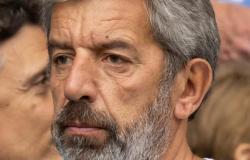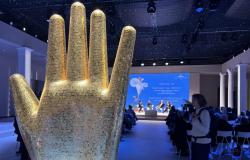
How does indoctrination work? This is the question asked by Rabiathe first feature film by Mareike Engelhardt in which Megan Northam plays the role of Jessica, a young French woman who left for Syria to get married and actively participate in the action of Daesh. There, she meets Madame, the cruel administrator of a madafa, these women's homes where new arrivals find themselves parked.
Since 2014, it is estimated that 500 French women in particular have chosen this path… But did they really know what awaited them? Why did they give up everything – family, studies, etc.? – to become the wife of a Daesh fighter? Each course is obviously particular, but with Rabia, Mareike Engelhardlt tries to give a face to some of these women.
In the privacy of the indoctrination process
Rabia is not a film to judge, but to try to understand, as director Mareike Engelhardt explains: “Around 2014-2015, I observed these young people who were leaving for Syria and I wondered about the reasons for these departures, but also about the mechanisms of their recruitment. I then understood that those who indoctrinated them were using emotions that were quite beautiful at first glance, such as the desire to belong to a family, the desire to create a better world, to ultimately turn them to their advantage. When we dig deeper, we realize that religion – although it was the first reason given – turned out to be more of a pretext than a real motivation for these departures. So it was important for me to work there, in the intimate, because I think that radicalization happens in the intimate, often in response to a psychological flaw.”
Virtually invisible but omnipresent violence
Although she confronts it directly with her film, Mareike Engelhardt chooses to suggest violence rather than explicit it:
“Showing violence head-on has never interested me, either as a spectator or as a director. I think it's even very complicated, that we sometimes do it too much. And especially for this project, we all have the images in our heads, the videos. We have all seen the images of the city, the videos. So I preferred to work it off-camera, notably with sound, in order to make this violence omnipresent but leaving the film watchable, a bit like Jonathan Glazer's The Zone of Interest (2023).”
But, on screen, this violence is still expressed through the face of Rabia, played by Megan Northam, increasingly closed and harsh as the story progresses::
“Doing the concrete evolution of a character was very interesting. Rabia was a very physical role. Despite her departure, she still remains in the fight against a little bit of everything, with a militant side that we guess at the beginning of the film and which has also been a part of me since I was little. We also see it when she finds herself alone: Rabia ends up going to war with herself, with Madame, and seeks to overthrow all the powers.”





